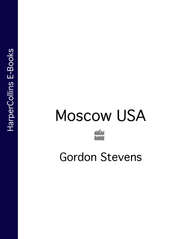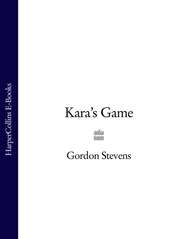По всем вопросам обращайтесь на: info@litportal.ru
(©) 2003-2024.
✖
Peace on Earth
Автор
Год написания книги
2018
Настройки чтения
Размер шрифта
Высота строк
Поля
‘A hundred.’
‘Plus films.’
‘A hundred and ten.’
‘A hundred and thirty.’
‘A hundred and twenty.’
He had their tickets to Vienna, plus something for his brother and his brother’s family when Stanislav and Mishka were allowed to leave. ‘A hundred and twenty,’ he agreed.
* * *
The flat was empty, the single suitcase in the middle of the kitchen floor where the table had stood. The children were frightened, he had not told them what was happening or where they were going in case they did not get there, in case the men from Petrovka came for him.
‘Mummy says that today you will take us all for a train ride,’ said his son. Yakov Zubko put his hand on the boy’s head. ‘Your mother is right,’ he smiled, ‘today I will take us all for a train ride.’
‘But why have they taken the chairs and tables?’ the boy asked. ‘Why have they taken my bed?’
‘Because today,’ his father told him, ‘we are going for a train ride.’
At three o’clock the friend from whom Stanislav sometimes borrowed the car for the family trips to the countryside came to take them to the station. Stanislav and Mishka, and their two children, would accompany them. They arrived at three forty-five, an hour and fifty minutes before the train was due to depart. In the square opposite was a Zhiguli similar to the one outside the house of Pasha Simenov. Yakov Zubko thought about the man and wondered where he was, if he had been caught, if he knew enough about him to betray him. He had not told Alexandra and did not tell her now; he had already decided not to tell her until they were in Israel, did not understand that she suspected.
The station was crowded. It took the officials twenty minutes to check the documents and tickets, twenty minutes for the people behind him to worry about their trains, and for Yakov Zubko to worry about Pasha Simenov. By the time he had been cleared, there was still an hour remaining. The two families sat together for the last time, not speaking. After thirty minutes they went to the square outside and asked the friend who had brought them to take a photograph of them together.
The photograph that was taken that day showed the men staring straight ahead, trying to hide their emotions, the women having the strength not to conceal theirs, the children holding hands, confused. Even in the noise of the square Yakov Zubko could hear the girl called Natasha fighting for her breath. At five minutes to five they said farewell: the words they would remember later, the only words they would remember when they had reason to remember, were the last words Yakov Zubko spoke to his brother.
‘B’shavia Haba a b’Yerushalaim.’
His brother could no longer hold back his tears. ‘B’shavia Haba a b’Yerushalaim,’ he said, ‘next year in Jerusalem.’
* * *
At seventeen minutes past twelve the following day, a mere seven minutes late, the Moscow-Vienna express carrying Yakov Zubko arid his family passed from the Eastern Bloc into Austria. The final check was remarkably brief, their papers were inspected, their single suitcase given the most perfunctory of inspections, and they were waved through. At three minutes to one that afternoon Yakov Zubko and his wife and children stepped into the West. Twenty metres away stood a woman from the Jewish Agency.
‘Shalom,’ she said, stepping forward to greet them. ‘Welcome.’
‘Shalom,’ he said, putting down the suitcase. ‘We are the family Zubko. We are coming home.’
Book Two (#ulink_e071b793-724f-543c-833e-09968f83938d)
CHAPTER ONE (#ulink_38ccabc8-cc03-54d5-959a-3b9639c3bdc8)
The MORI poll predicting a landslide victory for Ronald Reagan was on the second page of the International Herald Tribune. The man reading it sat in the chair in the corner of the room farthest from the window, between the sofa and the desk. The paper, one day old, had arrived that morning; he had not stopped reading the article, not stopped thinking about it, all day. The only person he had spoken to during that time, the only person he allowed to be in his presence, was the young man seated on the sofa.
The room, on the third floor of the complex, was neat and sparsely furnished, the walls a bare white. The only ornaments on the desk on the left side of the window were a chess set and a framed photograph of a young family, the children in the arms of their parents. Abu Nabil had aged almost thirty years since it was taken, though he could still be recognised in it; he kept and treasured it because it was the only photograph he had of his wife and sons; others kept and valued it because it was the only photograph of Abu Nabil known to exist.
At the side of the young man on the sofa lay a submachine gun.
It was two hours to midnight.
‘The car in ten minutes,’ Nabil told him. ‘Saad at eight, Sharaf at nine.’ The bodyguard went to the telephone and dialled two numbers, passing on his master’s instructions. The young men who took the calls, to be passed in turn to their masters, were surprised neither at the contents of the order not at the time it had been issued.
At fifteen minutes past ten Nabil left the safety of the complex in a black Mercedes, accompanied by three escorts, two to stay with him wherever he went and one to remain with the car. Even in Damascus, which he had made his home and base for the past six years, it was as unthinkable that his car should be left unattended as it was that he himself should not be protected. Not because of what might be missing from the car when he returned; rather for what might be added to it, as the Israelis had demonstrated during the maelstrom which had swept Europe after the massacre at the 1972 Munich Olympics, as the IRA and, he suspected, the British army itself, had proved in Northern Ireland.
The café to which he led his shadows was in a maze of alleyways and passages in a quarter of the city they did not normally frequent, the entrance almost hidden behind a street hoarding. They left the car and completed the last fifteen minutes on foot, not knowing where he was going or why he was going there.
The room in which they finally settled seemed smaller than it was, the air filled with smoke, the floor packed with tables surrounded by men, mainly old, drinking arak and playing tawli. Nabil settled himself against a side wall, almost lost in the semi-gloom of the room, as if it was the place he always sat, while a waiter in a dirty white shirt and floppy grey trousers brought them their drinks. They took them, no one seeming to notice the newcomer or the two men who sat at either shoulder, no one seeming to notice the weapons which hung beneath their loose-fitting coats.
Nabil sat for half an hour before he chose his man, then he ordered more drinks, rose from his seat, leaving his escorts against the wall, and made his way to the table he had selected, ignoring both the game in the middle of the room, where the shouts seemed the loudest, and the one in the corner which attracted the most spectators, easing his way through to the inner circle of men so quietly and inconspicuously that they did not even register his presence.
The two men at the table had skin like parchment; they sat facing each other, rolling the dice from a worn leather cup, counting their moves, checking each other’s moves. The game lasted another fifteen minutes, then the players began stacking the pieces in the wooden boxes at the side of the board, one of them finishing his drink and the other looking up at Nabil.
‘You would like a game, I think.’
Nabil knew he had chosen wisely. ‘I would like a game,’ he confirmed.
It was the beginning of the new day.
They played for thirteen minutes under the hour; when they finished it was not clear whether the old man had won or been allowed to win. The crowd began melting away till they were alone at the table.
‘One question, old man,’ Nabil asked politely, respectfully.
The old man knew it was why the stranger had come, why he had played him. ‘One answer,’ he agreed.
From the wall at the back of the café, the shadows watched intently.
‘We have just played,’ said Nabil, ‘and you have just won.’ His voice was quiet, yet the old man did not have to lean forward to hear the words. ‘If someone told you that you have just won and I have just lost, what would you say?’
The old man’s eyes shone with a sudden pleasure. In the night outside, he knew, something was stirring, beginning, did not know what, had no way of knowing, knew that most people would say he would never know. Knew, in his wisdom and his years, that one day he would.
‘My father,’ he began, ‘was a good man, a wise man. He was also an Arab. If a man took him outside at night and showed him the moon, then took him outside the next morning and showed him the sun, he would wonder why the man was telling him that the moon rose at night and the sun shone during the day.’ He saw that the stranger was nodding his understanding and reached for his drink. The glass was empty; Nabil slid his own across the table. The old man took it and sipped from it, then placed it between them.
‘Compared with your question,’ he went on, his voice faint with age, ‘such matters are simple.’ He looked down at the tawli board. ‘If you ask me whether I have just beaten you. I would answer no. I would answer that you have just beaten me.’
‘Even though everyone would tell you that you have just won?’
The old man’s eyes shone again. ‘Especially if everyone tells me I have just won.’
‘Why?’ asked Nabil. He was so close to the truth that only he would understand, that only he could know.
The old man fingered the tawli pieces.
‘With you,’ he said, ‘nothing is as it seems. If the world tells a man he has won and you have lost, then he has lost and you have won.’
‘Why?’
‘Because you are more than an Arab,’ replied the old man, ‘you are a Palestinian.’









